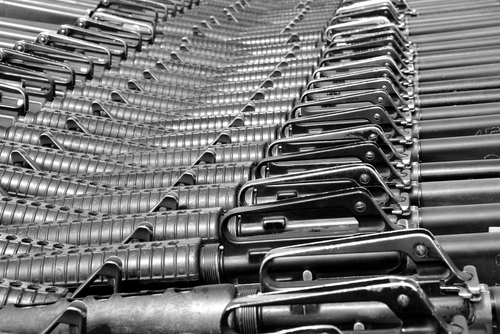Thinni also traveled to Moscow in an attempt to soothe ties with Russia, which have been strained since 2011, when Russia was accused of supporting the Gadhafi regime in the civil war. Indeed, Russia did not support UN Security Council Resolution 1973, which authorized the use of force against Libya at the time. Furthermore, in December 2011 President Vladimir Putin accused the United States of involvement in the killing of Gadhafi.
The Libyan army had been equipped with Russian-made weaponry in the past, and as Thinni noted, tens of thousands of Libyan officers trained at Soviet military academies in the 1970s and 1980s. After Libya was welcomed back into the international community, the Gadhafi regime signed large military and energy sector contracts with Moscow.
On his visit, Thinni sought to reactivate contracts concluded during a 2008 visit by Gadhafi to Moscow that some described as a “shopping trip.” Contracts signed then included one to build a railroad from Sirte to Benghazi and major investments in energy and infrastructure.
If Moscow decides to respond to the Libyan cry for help, it will first need to go back to the UN Security Council to pass a resolution suspending the arms embargo or completely lifting it, both of which are unlikely to happen any time soon, unless the talks in Morocco reach a conclusive agreement, another unlikely possibility despite Leon’s optimism.
Until then, Thinni must make do with what is available to his government without expecting much from the international community.
Mustafa Fetouri is an independent Libyan academic and journalist. He won the EU’s Samir Kassir award for the best opinion article in 2010.
(Arms image via Shutterstock)





